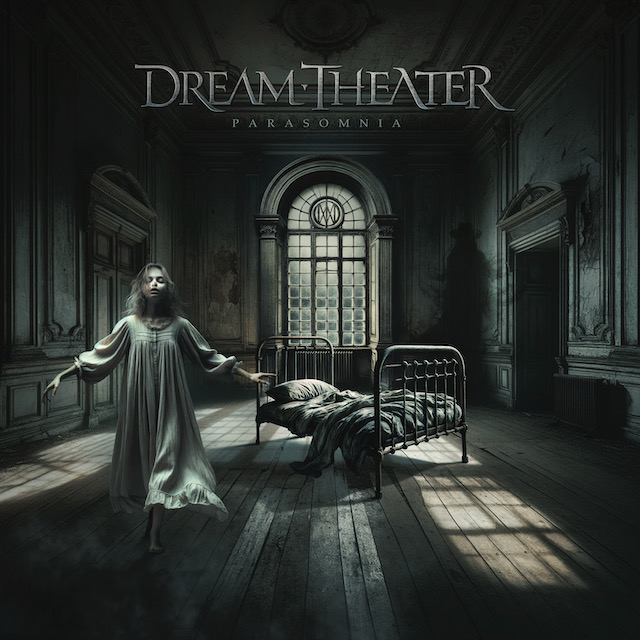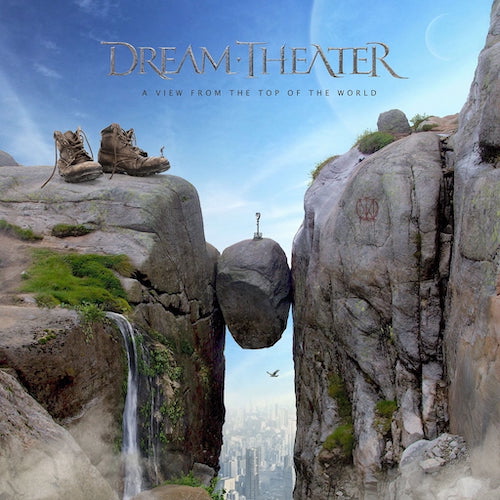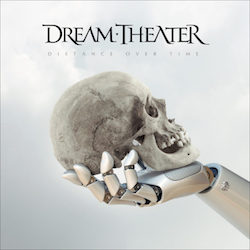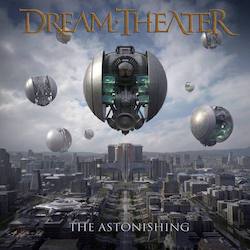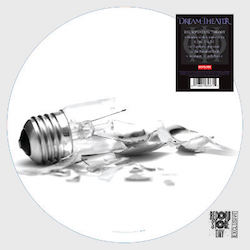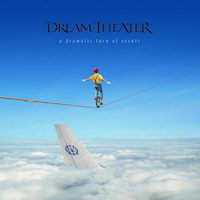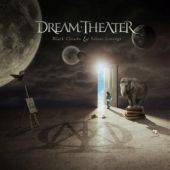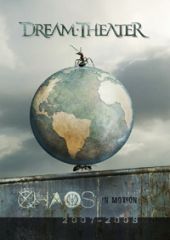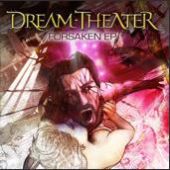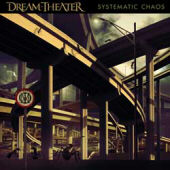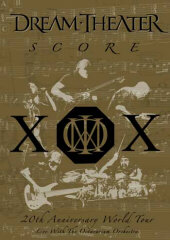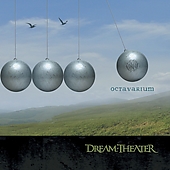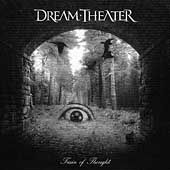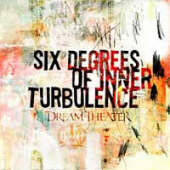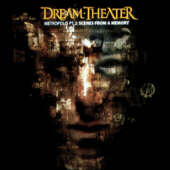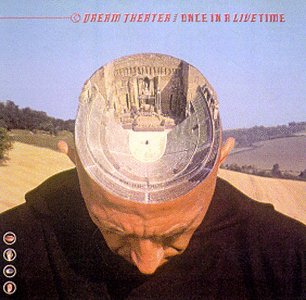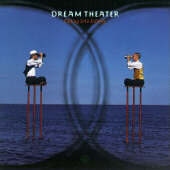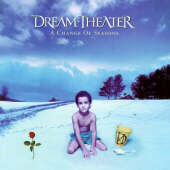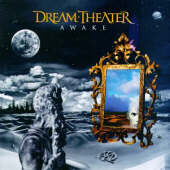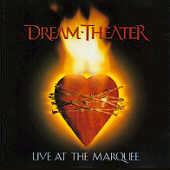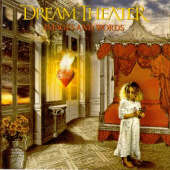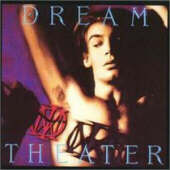Dream Theater - Interview
Jordan Rudess, the legendary keyboardist of the iconic progressive metal band Dream Theater, is experiencing a time of great excitement in his career. With Mike Portnoy's return to the drums, the band's dynamic has been revitalized, bringing back a musical chemistry that transcends decades. Rudess, who continues to innovate with his keyboard talent and passion for technology, shared his experiences and reflections on Portnoy's impact on the group and the creative process behind the new album. "Having Mike back is incredible. The energy and passion he brings to album creation and fan interaction are irreplaceable," Rudess stated. As the band prepares to release their next album and embark on a 40th-anniversary tour, Rudess reflected on Dream Theater's evolution over the years. Since joining the band in 1999, he has brought a new dimension with his orchestral approach and classical background. Now, with the recording of the new album almost complete and an imminent world tour, including memorable stops in Brazil, Rudess is eager to share this new era of Dream Theater with the fans. "We are excited about what we have in store. I am sure the fans will love the new album," he said, highlighting the band's ongoing commitment to innovation and musical excellence.
Marcelo Vieira
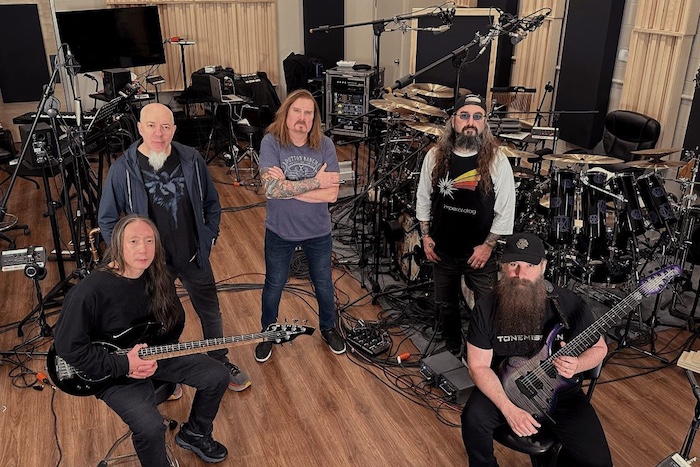
How has the experience of playing with Mike again been? Was there any special chemistry that rekindled?
That name sounds so familiar to me, I'm going to look it up. Yeah. Yeah. No, it's been awesome. We... Yeah, very familiar name. Yeah, it's great. I mean, you know, Mike and I have remained friends through all the years, and of course, we worked in liquid tension experiment together, and having him come back into our fold, if you will, just feels very natural. And it's also been very exciting, because there are certain elements that, a lot of elements that he brings, you know, with him, not only his, you know, ability to play the drums beautifully, but also all the passion he has for all the aspects of, you know, creating albums and conceptual thinking and, you know, and the fans and there's a lot of wonderful things that we have, you know, as in store for everybody, like the album, the tour, and with him back in the band, I just feel like we're going to have a lot of fun and it's going to be really awesome.
How has the working dynamic been with Mike since his return? I mean in terms of rehearsal, composition, etc.
Yeah, well, with I think with anything that like Portnoy does, he's very engaged, you know, he's very passionate about it, he cares deeply, he weaves a part of it. You know, he has opinions about things, whether it's about the music and the audio part of it or if it's about anything that has to do with graphics or any element of the business, whether it's like, you know, coming up with the set lists for the next tour, he's taking that and, you know, he's he you know, and there's so many things that he's good at in this business. And, you know, we are excited about having someone with those skills back in our lives. I mean, you know, we were able to function and function beautifully, you know, without him and with Mike Mangini. We won a Grammy. We did really well. But it's such a pleasure to have Mike Portnoy back because of all his talents and his passion for everything that has to do with the music business. And at what stage do we welcome that? You know, with open arms, we're totally all about it. Like, bring it on.
What does Mike Portnoy bring differently to Dream Theater's sound now compared to when he left?
I mean, it's a similar kind of thing from that point of view. I mean, he is who he is. If anything, he's more, you know, as we all are, more mature and more grounded. And he's just able to bring, you know, all the things that he cares about so deeply in a way that is just, you know, maybe even more comfortable for the group as an entity than it was back, you know, what it was 13 years ago.
At what stage is the recording process of the new album?
Oh, we're doing well. I just finished my keyboard tracks. Actually, I was living in a hotel for about a month doing all the keyboards, and then we were working on things like sound effects and all this cool stuff. And now James has to do some vocals and then it's got to be mixed and mastered and all the good things. So we're making good progress. I listen to, you know, the album so far that doesn't have vocals on it yet. But I listened through to the other day and I was like, oh, my God, the fans are going to love this. This is so cool. So we all have a, you know, a really good feeling about it. We've been pouring our hearts into it and spending a lot of time crafting it.
Mike Portnoy stated the new Dream Theater album 'picks up right where 'Black Clouds & Silver Linings' left off'. Do you agree with him? What could you add to this statement without giving spoilers?
Oh, I guess. Yeah. I mean, we left off with him. So now he's back and so the energy is back to this kind of interesting core combination again, which I think I think there's really some magic there. You know, it was good to in some ways it was good to get a break because then when we come back together, it's like, wow, this chemistry, it really, really works. You know, it's really fun. So that's where we're at.
The upcoming tour aims to celebrate the band's 40 years. How do you see the band's evolution over these 40 years?
Wow. Well, like anything, you know, it goes through a lot of changes, you know, like. I think that my first thought about that is I remember when I joined the group, right when the group had already been going for some time, which was back in 1999. And, you know, my approach to music and to keyboard playing. Helped to kind of bring the band down and, you know, a road they hadn't traveled on before because of my kind of orchestrational approach and my classical background and the way that I played the piano and, you know, things like that. So I think that we're a group that, you know, not only has undergone some like member changes but also it's a collection of people who are always learning and bringing what we learn into the next adventure. So we do an album, we put it out, we learn so much from the experience about the recording, the way that we recorded the instruments, whatever kind of. But for me, like if I use a certain kind of technology, maybe bringing new technology into the band or like with John Petrucci, maybe he's studying a new technique on the guitar. We kind of always roll that into, you know, the next phase of Dream Theater. So, you know, I feel lucky that I'm with people who kind of is like that and the planet where we're able to evolve and grow and interested in that process of reaching another level.
Brazil is on the tour route. What are some of your most memorable memories of playing here?
Oh, well, I mean, first of all, I've got a lot of friends there, so it's always, you know, a big event when we come to Brazil, just meeting all the people that I know and hanging out. So besides the music, besides the concerts, there's always a lot of social things that happen. And, you know, I'm somebody who goes out, I try to go out and see the town. So I've walked and experienced all of them, you know, that we've been to. And that's always memorable to me, you know, but as far as like the Brazilian audiences go, some of the best Dream Theater fans on the planet Earth, so passionate, so into it, there's so much energy, you know, we're just going to have a great time there with this I know that there's a lot of anticipation, you know, for our next tour. And we're thinking about it all the time, really working on it. And when I and honestly, when I think about, you know, all the places we go in the world. I haven't really even studied the full schedule yet, but. I know we're coming to Brazil, you know, it's one of the places where you go, there might be there are places on the list that I'll find out the day before we get there, and I'm sure they're wonderful fans, but, you know, we're coming to Brazil and that's like a big a big deal. So, yeah, so there's definitely a relationship there.
How was it starting professional lessons so early?
Yeah, so my family was not musical. My mother liked music, she went to concerts, but she was not didn't play an instrument. But I discovered the piano when I was seven years old. I was in my second grade at school, and I would go to the piano and I would just play, you know, and one day the teacher called up my mother and said, hey, Jordan is playing the piano so beautifully and he's sorry, he's playing the piano so beautifully in the classroom. You know, we really appreciate it. And my mother was like, what do you mean? We don't have a piano. So she was like, really? Well, you should get one because he already plays it. So, yeah, so that's how it started. And then from there, you know, I started to take lessons. And after about a year or so, my family realized that I had some talent, and they took me to a very serious music teacher who then prepared me to go to the Juilliard School of Music in New York City. And that's where I learned, you know, that's where I was studying classical music and where I got the foundation for everything that I do, basically.
Leaving a prestigious program like Juilliard to pursue progressive rock was a bold decision. What motivated you to take that risk and follow your own musical path?
So I was going to be a classical pianist and from, you know, basically just completely focused on that from the age of nine until I started to my eyes started to wander a little bit. My high school friends were starting to bring me records in those days, like vinyl records of like Genesis and Pink Floyd. And, you know, somebody turned me on to Emerson Lake and Palmer and that was it. Like for me, that was like, what was this? I never heard anybody playing the keyboards with that kind of power. So. I was familiar with the kind of chords maybe that he was using, but I wasn't familiar with this kind of like strength, you know, that from the keyboard. So I thought this was incredible. And I listened to that album over and over and over again. And in those days, I was preparing, of course, to go to college and I had been going to the Juilliard Preparatory Division, the division that's for the younger people to go to college, you have to re-audition again. Right. And so I was kind of like, oh, what do I do? Like, I'm interested in this other kind of music. But. Anyway, I ended up auditioning for Juilliard and I got it and then I got a pressure, really intense teacher, and she was like, you are going to emerge early in the classical music scene and be a famous concert pianist. Meanwhile, I was thinking about like my Minimoog synthesizer, you know, like the one I wanted, you know. So. After about three-quarters of a year or so, I left and I said, goodbye, I'm out of here, I wanted to go do my own thing. So that's kind of how it happened. You know, I was really on the road to being a classical pianist. And then I had to go down a different road.
In the early 90s, you had the choice to join both The Dixie Dregs and Dream Theater. What made you initially choose The Dregs?
Yeah, so in those days, you know, things were very different. I wasn't. Let's see, how do I explain this? So my wife and I, first of all, had just had a baby. So there was that part of it. It was also the part that I had a job. Basically, I was working with a synthesizer company called Kurzweil and paid like a regular kind of salary and it was flexible, and it was fine. And I also got offered a gig to play with the Dixie Drags. But at the same point, Dream Theater asked me to join with them. Now, in those days, I didn't Dream Theater, it was a different thing, right? They were just kind of, you know, getting established. And I wasn't really sure of what kind of financial offering they were going to make and how it related to everything. It seemed like they were going to go away for months at a time. And there were various parameters that led me to think, well, I like them so much. They're really cool guys. They play so well. I like their music, but the baby, the job, I can play music anyway with the Dixie Drags, who I was very familiar with. I was a fan of the Dixie Drags, so I thought, you know what, guys, I'm sorry, I'll help you out with the one show that you really needed help with, which was the famous kind of like Concrete Music Foundation's event, which is on YouTube and you can see me playing with them back in those days. But I did so I did one show and then I said, I'm sorry, I can't really join the group. So that was that. And then, of course, you know, a year or so later, I got a call from a manager guy who said, oh, Mike Portnoy wants you to join a “supergroup”. So I thought, well, what the hell is a supergroup? So the super group, of course, turned out to be Liquid Tension Experiment. And so I thought, oh, this is great. OK, well, I didn't join Dream Theater, but I'll get to work with these guys anyway. So for them, it was a side project. Right. So we did the side project. And the first album did very well, a very successful instrumental album. Then the second album we did was very successful as well. And we had a great time, probably. I think Liquid Tension Experiment is probably among the most successful instrumental rock music ever made. So when we finished the second album, the guys said to me again, hey, Jordan, what do you think? Like, shall we look at doing the Dream Theater thing? And I was like, OK, guys, this is a good time to do it. Let's make it happen.
A novel based on "Metropolis Part 2: Scenes from a Memory" was recently announced. With that in mind, what are some of your most memorable memories from recording this album?
Yeah, it was it was a really fun album to create. First of all, the studio that we created it in was right kind of near where I live. So that was nice. I didn't have to travel too far to get there. And it was this old, very cool house and amazing setup, you know, so it was my first time working with the guys. You know, I thought that going from Liquid Tension Experiment to Dream Theater was going to be very similar because really the only difference in my mind was that instead of an Asian long black haired bass player, you know, we had a tall, bald guy, you know, with playing bass and I'd walk, you know, it would be like somewhat similar. But I walked in, and I realized that it was really a different thing because. The window of possibilities musically was very different, you know, because Dream Theater already had kind of an established sound and audience, and so we had to work within this. Particular musical zone, which is large, but still it's not Liquid Tension Experiment, where it's a soup of my style, Tony Levin style, Fortnite, Ritchie, this was more like, OK, now we're in Dream Theater, we're creating Dream Theater music. So that was, you know, and I walked into that, and I remember. I had like 50 ideas like I had so many ideas, like musical ideas, not full songs, they just said like, you know, eight measures of music here, 16 measures of music there. And I walked in, and I told them about it. I remember Mike Portnoy said, wait a minute, wait a minute. But we write the music together like that. You can't you don't you know, nobody's rights to stuff on their own. And he wanted to hear all the ideas because that's who he is. He wanted to hear every one of the ideas. Right. So, you know, it ended up that there were some things in there that they really liked, and we use some of those things. But it was so it was a mixture of exciting and a learning process to learn how the guys work and for them to learn how I work. I remember really orchestrating that album, like doing all kinds of parts, right? All kinds of things. And one day, like I think it's Mike or John said to me, you know what, this is great stuff, but I don't know if we need that many parts. Like I probably had strings and brass and woodwinds and horns and special effects. And, you know, somewhere those tracks exist from the original scenes from a memory, you know, project. But so I had to learn what they really expected in this situation. So but it was all good. You know, we were I was having a good time. They were having a good time. And that's kind of how it all came about.
What do you think about the potential of AI in music creation?
Oh, well, you're going down that road. Yeah, right. The Brave Road. Well. You know, first of all, so I have a residency at MIT in Boston, which is, you know, the school college where A.I. Was born. I mean, this is like, you know, I'm working with the Media Labs. It's one of the most exciting technology facilities in the whole world. So I have a strong relationship with technology, as I'm sure you know. You know, let's what I what I focus on personally is A.I. As a tool, something that something that is a next-level tool that can do things that we've never had happen before. Things that are exciting, that make you think, that can enhance performance, which can hand that can enhance the way we create music in so many different ways. But we live now in a period of time where AI, as the latest and greatest, very powerful, almost out of control tool is very threatening to a lot of people and a lot of artists, too, where they feel like, oh, my God, this is going to take my job or, you know, this is not a good thing. It's bad. What about the human being? So, you know, as someone who's on both sides of it, somebody who plays the piano and the guitar and, you know, all the instruments that I play, I feel it. I see, you know, what people are thinking. I understand the fear as this fear with any brand new technology, especially one that's this powerful. But there are a few things I think are a good thing. One is that AI allows people to be involved with music that might have never been able to touch the musical experience before. You have companies like Suno or an audio just in the news the other day. I read that the big record companies are suing them as a whole lawsuit against these companies, these big A.I. music companies. But those companies, they're what they've done is they've created technology that allows people to get involved with the music creation process in a way that was never possible before. Like, you know, my wife, you know, she sent me a piece that she put together using one of these applications for our 35th anniversary the other day. Really funny, really cool song all about our 35 years together. And it was with somebody singing and a whole band. I was like, amazing. I was like, oh, my God, this is crazy. And of course, it was done with Suno. So there's this joy that can happen. It was never possible before to do anything like that. It's how do you even how that even works? Right. You can't even imagine how it works. I don't know if you've tried any of these things, but it's nuts. So. I get it, it's so amazing that there's a lot of fear, like, oh, my God, the A.I. is creating a song with vocals, guitars, bass, and drums in one minute. That's scary, but it's also amazing and it's also really fun. So we'll see what happens with the lawsuit thing. So because I think that, you know, you've got this technology that's going to make a lot of money and have a lot of power. And then you've got the record company representing the artists. You know, we know how record companies work. But anyway, they're representing the artists, supposedly. And they want you know, everybody wants a piece of this action, obviously. So let's talk about it a little bit from another perspective, which is me as an artist using A.I. I'm working with a team at MIT to figure out a cool way to use A.I. in an integrated sense so I can use it to like almost like jam with. I'm working on creating a model of my musical brain so that I can sit down and like jam with my A.I. partner and have it not only generate its own ideas based on what I taught it but also predict and react. So if it's doing something that I can play something and maybe go to a certain chord and it goes, oh, that chord. And it kind of says, I know. And it does what Jordan would do. So it's this whole thing where it's becoming this way to kind of almost extend what was ever possible before. And it's really fun. And I think it'll be really entertaining for an audience and really educational and kind of like next-level stuff. So I have a lot of thoughts about it. And this is a this is a tremendous topic, which is worth thinking about. But I think that people one of my messages, I guess, at this point is people should get beyond just the fear part of it and realize that, yes, everybody, when brand new technology comes out, there's always, you know, this kind of feeling. But it's not going away. And it's really powerful and can be really fun and really cool. So you might as well be starting to think about how to use it and enjoy it and just go with the ride.
What are your plans for the future beyond Dream Theater? Do you have any solo projects or collaborations with other artists in the works?
Yes. So thanks for asking that. So, just about a week ago, I announced my new solo album. It's called Permission to Fly. It's coming out on an inside-out Sony, the same label as Dream Theater. And it's I just released one of the songs on video a few days ago as well. It's called The Alchemist, which is available to see on YouTube. And it's a follow-up really to my Wired for Madness album. It's very progressive rock touches of metal. You know, the music out of my crazy musical brain. It features vocalist Joe Payne and drummer Darby Todd and also a guitarist whose name is Steve today and a very amazing Chilean young guitar player who I found whose name is Bastion Martinez. So, yeah, really excited about the album. Of course, these things take a lot of work, a lot of time, and a lot of passion. And I think it'll be something really fun for Dream Theater fans to listen to while they wait for the new Dream Theater album to come out. I haven't heard a definite release date for it yet, but I think it probably will come after the new year.
Video version: https://www.youtube.com/watch?v=rwj5kkf5iX0
Discography
Upcoming Releases
- Morrath - Obscure Abominations - Feb 25
- Chalice - Divine Spear - Feb 27
- Blackwater Drowning - Obscure Sorrows - Feb 27
- Vide - Aux Enfants Des Ruines - Feb 27
- The Leaving - The Leaving - Mar 06
- Serpent Icon - Tombstone Stories - Mar 06
- Insect Inside - Reborn In Blight - Mar 06
- Triumpher - Piercing The Heart Of The World - Mar 06
- Lömsk - Act II - Of Iron And Blood - Mar 06
- God Against Humanity - The Judgement - Mar 06
- Miserere Luminis - Sidera - Mar 06
- Gravemass - This Is The Way - Mar 06
- No/Más - No Peace - Mar 13
- Monstrosity - Screams From Beneath The Surface - Mar 13
- Against I - Anti Life - Mar 13
- Empire Of Disease - While Everything Collapses - Mar 19
- Hanging Garden - Isle Of Bliss - Mar 20
- Putred - Blestemul Din Adânc - Mar 20
- Gaerea - Loss - Mar 20
- Diatribes - Degenerate - Mar 20

